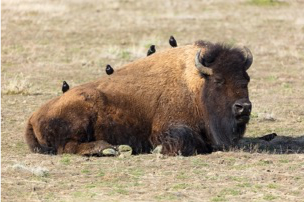
I suppose I have been a conservationist in one form or another most of my life. I say conservationist instead of environmentalist, although I’m one of those, too. They are different, however, and my initial awareness was one of conservation. Growing up in one of the most fertile parts of this country, I was aware from a young age how inappropriate it felt when a beautiful Lancaster County farm was bought up and developed into another housing development. Even as a child, listening to the debate about efforts to preserve the farmland of southeast Pennsylvania, the movement to protect it felt like the better course to me.
That form of preservation is conservationism, not environmentalist. Conservationism protects land for appropriate and measured use, while environmentalism will lean towards a preserve and observe stance. This is an active conversation in many places today, from this little Island to the vast Amazon rainforest that has been in the headlines again recently. There is a question at the heart of human existence that asks us to consider how we can faithfully interact with the creation God placed us in and amongst.

I’ve recently been reading about the history of the National Park Service; how it came to be in the 19th century, and why it was so unique. Many of us know names like John Muir, Gifford Pinchot (a good Pennsylvanian!), and of course Teddy Roosevelt. There were many others, but these names still stand out in this movement. In the 19th century, Americans were becoming acutely aware of the impact we were having on the natural world around us. A single generation witnessed the destruction of the Passenger Pigeon population that had once numbered in the hundreds of millions. There was also the destruction of the American Buffalo in less than fifty years, reducing the population from tens of millions to a few hundred by the end of the nineteenth century.
Another rambling can deal with the treatment of the persons we displaced as we moved west and how they were treated. Even as I celebrate the creation of the National Park system, I am aware that such events fostered the poor treatment and relocation of native persons. The part that I focus on today, however, is the part of this process that causes us to recognize the value of preservation and conservation for future generations. Inherent in that recognition is the acknowledgment that we are destructive by nature. When there aren’t efforts to protect things we want to preserve, there is a high likelihood we will destroy them. As John Muir once pointed out, even the first preservation of the first tree in Eden was faced with destruction from Satan and every human being on the planet!

In 1864 Congress and President Lincoln protected the Yosemite Valley as a California state park. A year later, referring to Yosemite, Frederick Olmstead said that the rights of the future are more important than the desires of today. Olmstead, Muir, and others were keenly aware of our natural tendency to discount the future. We are a terribly short-sighted race of beings, as it turns out. Even today, for example, we see the discounting of the future play out when fisheries in decline are ignored by those who want to fish them today and don’t seem troubled that their descendants will not be able to do the same. Such discounts in favor of today’s appetites are on display in all sorts of ways. Joni Mitchell wasn’t far off when she sang, “You don’t know what you’ve got ‘til it’s gone.”
At the time we started setting land aside as a nation, we were the first in the world to do so. It was an extension of the democratic vision that made us unique and still represents a minority approach to collective life in the world. National Parks were created to prevent exploitation of superb natural environments, keeping them free from destructive commerce like logging and mining, but also ensuring they wouldn’t become commercialized embarrassments, as Niagara Falls was labeled by so many in that century. The National Parks were seen as a shared responsibility of the American people, open to everyone, not just those with the resources to access privately controlled tourism. What I find more interesting is that democracy was not only applicable to the American people of that day, but to us as well. The National Park System represents democracy through time as well. It ensures the rights of those who have not yet come into the world. It preserves the value of the natural world that is so fragile in the face of careless human life.
I hope that Brazil and the international community will figure out how to balance the needs of a growing nation with the natural resources of the Amazon to ensure quality of life for us, but more importantly for those who come after us. I don’t think everything can or should be preserved and protected, and yet there is a tremendous value in setting some places aside, lest we destroy it all. Once unique ecosystems are gone, they don’t come back. As I said earlier, there is a question within us we must each answer concerning how we can faithfully interact with the creation we are a part of. It’s an open question, and one I hope we are answering the right way, not just for the sake of the creation itself, but also for those who aren’t here yet to speak for themselves.
Tom+
